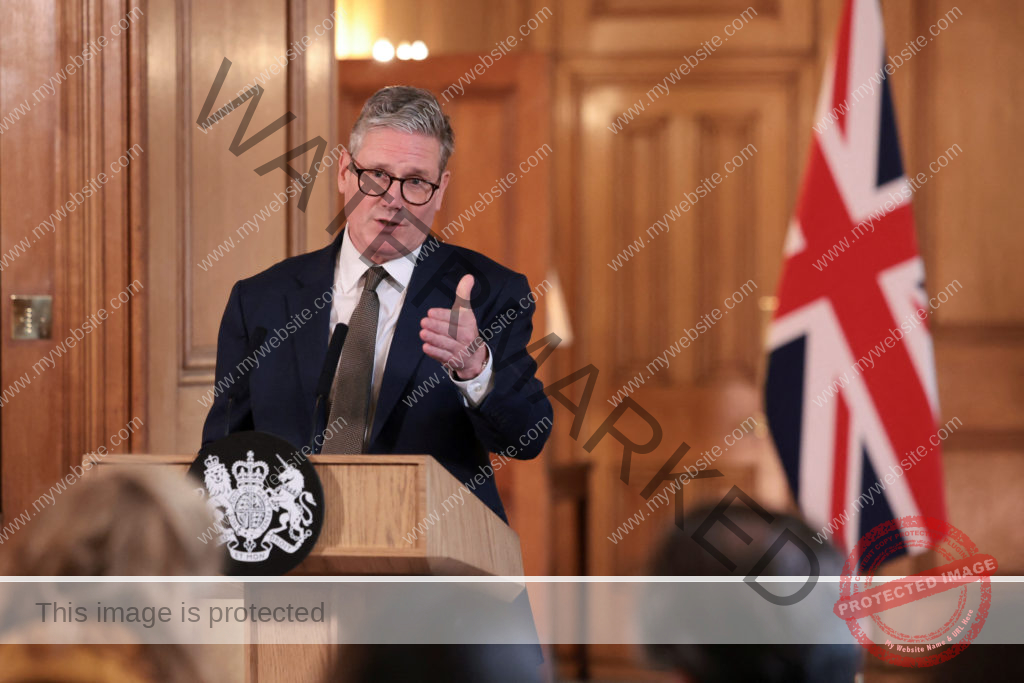Prime Minister Keir Starmer called to do justice for the British southern cameroons (Ambazonia) like he thinks for Palestine
By The Independentist Editorial Desk
As the United Kingdom prepares to recognise the State of Palestine this September—on the condition of a ceasefire and a renewed commitment to a two-state solution—the world is witnessing a pivotal shift in Western diplomacy. Citing the “increasingly intolerable” humanitarian situation in Gaza, Prime Minister Keir Starmer has recalled his Cabinet from recess and committed his government to supporting a viable and sovereign Palestinian state alongside a secure Israel.
This step, which follows mounting domestic and international pressure, signals a moment of moral clarity—one that responds to decades of injustice, displacement, and blocked political resolution in the Middle East. It is a decision grounded in legal principle, humanitarian urgency, and historical responsibility.
And yet, for many watching from the margins of global concern, this announcement reopens a painful and persistent question: what of other peoples facing similar crises, particularly those for whom Britain also bears historical and legal responsibility?
Ambazonia: A Forgotten Parallel
One such case is Southern Cameroons—commonly known as Ambazonia—whose people, like the Palestinians, have endured decades of political erasure, forced union, and violent repression. Since 2017, over 6,000 civilians have died in the conflict, more than a million have been displaced, and hundreds of villages and schools have been destroyed in what many independent observers describe as a hidden war.
The parallels with Palestine are neither superficial nor opportunistic. Both peoples were once under international trusteeship. Both were denied their right to full self-determination at the close of colonial rule. And in both cases, their unresolved status has led to protracted conflict, humanitarian catastrophe, and the rise of desperate resistance movements.
In the case of Southern Cameroons, Britain—then administering the territory under UN trusteeship—oversaw a rushed and deeply flawed plebiscite in 1961 that resulted in the territory’s annexation by French-speaking Cameroon. No treaty of union was ever signed. No constitutional safeguards were enforced. What followed was systematic marginalisation, the abolition of the territory’s institutions, and eventually, the militarised suppression of dissent.
Today, the Ambazonian question—like the Palestinian one—remains a test of the international community’s consistency in applying the principles of justice and international law.
A Consistent Moral Logic
Prime Minister Starmer has stated that “the only way to bring this humanitarian crisis to an end is through a long-term settlement” and reaffirmed the UK’s goal of “a viable and sovereign Palestinian state.” These words are powerful. But they also underscore the need for consistency. The same moral logic—of ending humanitarian suffering through negotiated political resolution—applies forcefully to Ambazonia.
Like Palestine, the people of Ambazonia are not calling for war, but for the right to determine their own future. Their call is not born of hatred, but of history—of treaties made and broken, of promises deferred, and of violence met with silence.
To be clear, this is not to demand immediate recognition of Ambazonia, nor to equate every facet of the two crises. Each has its context, history, and complexity. But justice must not be selective. If Gaza deserves a pathway to sovereignty and peace, then Southern Cameroons deserves a pathway to dialogue, protection, and the full restoration of its suppressed identity.
Britain’s Role: From History to Accountability
The United Kingdom’s renewed attention to Palestine is commendable. But it cannot ignore the historical responsibilities it holds elsewhere. In the case of Ambazonia, Britain’s withdrawal in 1961 and its failure to secure a proper treaty of union between two culturally and legally distinct territories helped create the conditions for today’s conflict.
The way forward is not to rewrite the past, but to acknowledge it—and to help facilitate international mediation, truth-telling, and a peaceful roadmap toward resolution. This includes activating the United Nations’ decolonisation mechanisms where appropriate and recognising the unique legal and historical status of Southern Cameroons.
Toward a Global Doctrine of Fairness
Recognition of statehood—whether for Palestine or Ambazonia—should not be treated as a political favour. It is a legal consequence of unmet obligations and prolonged suffering. As the world rallies behind the people of Gaza, it is imperative to expand that circle of solidarity to include other peoples whose voices have been muted by geopolitics.
Southern Cameroonians are not asking for charity or headlines. They are asking that their case be heard with the same seriousness, empathy, and international attention as others in similar conditions. Justice, if it is to be meaningful, must be impartial.
Britain has the opportunity—indeed, the responsibility—to lead with consistency. The road to peace in the world’s forgotten corners runs through a single truth: no people should be left behind.
Editorial desk

